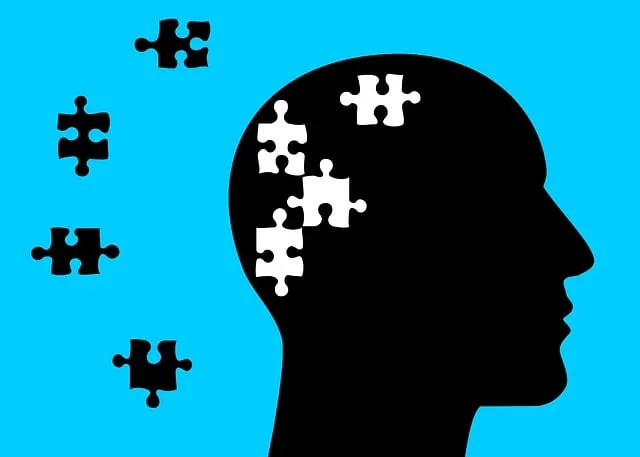The Denver Kaiser Permanente mental health department prioritizes cultural sensitivity through comprehensive training programs targeting unconscious bias and enhancing cultural competency. They strive to meet the unique needs of their diverse patient base, addressing barriers like workforce diversity gaps and high turnover rates. By integrating evidence-based practices, self-care initiatives, and a rigorous case study methodology, the department ensures tailored, empathetic care for all community members, fostering better access to quality mental healthcare services.
“Cultural sensitivity is a cornerstone in delivering effective mental healthcare, especially within diverse urban centers like Denver. This article explores the significance of cultural competence in the Denver Kaiser Permanente mental health department, where a significant number of patients represent various ethnic and cultural backgrounds. We delve into the challenges faced, analyze barriers to culturally sensitive care, and present strategic solutions to enhance professional training. Additionally, we discuss methods for measuring cultural sensitivity through case studies, offering insights into improving healthcare outcomes for Denver’s diverse population.”
- Understanding Cultural Competence in Mental Healthcare
- Challenges and Barriers in Denver Kaiser Permanente's Mental Health Department
- Strategies to Enhance Cultural Sensitivity Among Mental Health Professionals
- Measuring and Evaluating Cultural Sensitivity: A Case Study Approach
Understanding Cultural Competence in Mental Healthcare

In the diverse landscape of mental healthcare, cultural competence stands as a cornerstone for effective treatment and patient outcomes. This concept involves understanding and appreciating the unique cultural backgrounds, beliefs, and values of individuals seeking therapy. The Denver Kaiser Permanente mental health department has recognized this need by implementing various programs aimed at enhancing cultural sensitivity among its practitioners. By prioritizing cultural competency, the department strives to ensure that all patients receive care tailored to their specific needs, regardless of their ethnic or cultural identity.
Mental Health Education Programs Design often incorporate self-awareness exercises to help healthcare professionals recognize their own biases and preconceptions. These exercises foster an environment where providers can actively listen to and respect patients’ perspectives, leading to more accurate diagnoses and tailored treatment plans. Through continuous training and learning, the Denver Kaiser Permanente mental health department ensures that its staff remains equipped to navigate the intricate web of cultural differences, ultimately promoting better access to quality mental healthcare services for all members of the community.
Challenges and Barriers in Denver Kaiser Permanente's Mental Health Department

The Denver Kaiser Permanente mental health department has faced several challenges in providing culturally sensitive care to its diverse patient population. With a rapidly growing and increasingly heterogeneous community, ensuring that services are accessible and tailored to various cultural backgrounds is no easy feat. Barriers include a lack of diversity within the healthcare workforce, which can limit the understanding of unique cultural needs and traditions. This issue is further exacerbated by the high turnover rates among mental health professionals, contributing to staff shortages and potentially impacting continuity of care.
Additionally, the department has struggled with burnout prevention strategies, as the demanding nature of mental health practice in a large urban setting may lead to increased stress levels among providers. Risk Management Planning for Mental Health Professionals has been implemented, but integrating evidence-based practices like Social Skills Training to enhance cultural competence and improve patient outcomes remains an ongoing focus.
Strategies to Enhance Cultural Sensitivity Among Mental Health Professionals

Mental health professionals play a vital role in fostering inclusive care that respects diverse cultural backgrounds. To enhance cultural sensitivity, Denver Kaiser Permanente’s mental health department encourages ongoing training and education. This includes workshops on unconscious bias, cultural competency, and learning about various communities’ unique mental health expressions and challenges. Additionally, promoting self-care practices among healthcare providers is essential; burnout prevention strategies, such as coping skills development and self-esteem improvement initiatives, contribute to a resilient and culturally competent workforce. By investing in these areas, the department aims to create an environment where every patient feels seen, heard, and supported.
Measuring and Evaluating Cultural Sensitivity: A Case Study Approach

Measuring cultural sensitivity in mental healthcare involves a nuanced approach that goes beyond mere awareness. The Denver Kaiser Permanente mental health department has adopted a case study methodology to evaluate and enhance its cultural competence. This strategy entails examining real-life scenarios where providers interact with diverse patients, allowing for an in-depth analysis of their responses and decision-making processes. By immersing themselves in these cases, practitioners can identify potential biases or gaps in their understanding, fostering a more empathetic and effective treatment environment.
The case study approach encourages critical reflection on various aspects, including communication styles, assessment techniques, and intervention strategies. For instance, it explores how emotional intelligence and mindfulness meditation practices can be tailored to respect cultural beliefs and preferences. Furthermore, examining successful Community Outreach Program Implementations within the department provides valuable insights into engaging hard-to-reach populations and addressing systemic barriers to care, ensuring culturally sensitive mental healthcare services for all.
Cultural sensitivity is a cornerstone of effective mental healthcare, as evidenced by Denver Kaiser Permanente’s Mental Health Department’s experiences. By addressing challenges and implementing strategic solutions, this department has demonstrated that enhancing cultural competence can significantly improve patient outcomes. The case study approach highlights the importance of measurable evaluation in fostering an environment where diversity is embraced, and care is tailored to meet the unique needs of every patient, regardless of their cultural background. This holistic approach not only benefits individuals seeking mental health services but also contributes to a more inclusive and equitable healthcare system as a whole.






